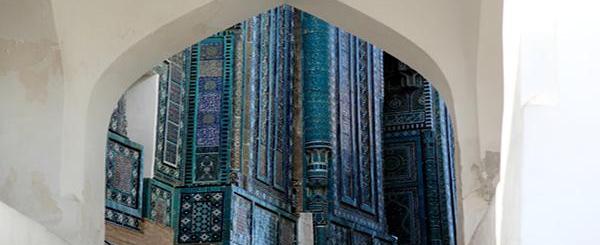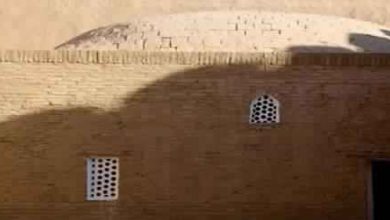ALI IBN ABI TALIB

ALIB IBN ABI TALIB
Life: 599-661 A .D
Preface: This is only a summary of the life of Ali ibn Abi Talib RA and does not cover all the points of his life story. It is not intended to be a biography, but rather a glimpse of the main incidents of his life so that we can get an idea of his character. For ease of reading, we have not inserted “May Allah be pleased with him ” each time his name or the name of each Companion is mentioned, but please take it that the salutations apply to all of them, may Allah be pleased with them all.
Caliphate: 656 – 661 A.D.
How much do we know of the last of the Rightly Guided Caliphs, the one of whom he said that the Prophet SAW gave him a promise that: “No one will love you except a believer and no one will hate you except a hypocrite?”
It has been reported by various sources that he was born inside the Ka’bah. His full name was Ali ibn Abi Talib ibn Abdul Mutalib. He was the paternal cousin of the Prophet SAW and shared a grandfather with him in ‘Abdul-Mutalib ibn Hakim. His father was Abi Talib, the full brother of Abdullah, the father of the Prophet SAW. After the death of Abdul Mutalib, Ali’s father, Abu Talib, became the chief of the clan. ‘Ali’s lineage to the Prophet SAW is exceptional for not only is he the Prophet’s SAW cousin, he was also adopted into the Prophet’s SAW household when he was young. He was subsequently bestowed the title of “brother” by the Prophet SAW upon migration to Medina as he undertook to care for his welfare. Soon after Ali became the Prophet‘s SAW son-in-law when he married Fatimah after the Battle of Badr. She bore him two sons Al-Hasan and Al-Husayn, and a daughter Umm Kulthoom.
Other than being the close to the companions of the Prophet SAW, ‘Ali also fostered close ties to Umar when Umar gave his daughter Umm Kulthoom to him. It is also evident that he held a high position in Umar’s eyes for he was one of the six companions of the Prophet SAW to be nominated as Caliph upon Umar’s death.
Simplicity was the key to ‘Ali’s existence. He was brought up in a simple and spare surrounding while he was in the Prophet’s SAW household and he continued doing so when he married Fatimah. They lived on basic food like milk, barley bread and some vegetable, although at times had to go without food for days. When ‘Ali became a Caliph, he maintained the same austere lifestyle. Also keeping his meals simple, he said that a Caliph was entitled to two dishes, one for his family and the other for the poor.
Despite being poor and living a meager life, ‘Ali would never let any poor man at the door leave disappointed. Such was his generosity that once, after he worked at a barley field to earn some grain, he ended up not consuming any of it as he had generously spared the portions to a beggar, an orphan and a prisoner, all three having asked him for food.
Bravery was second nature to ‘Ali for he had fought valiantly at battles and emerged victorious, earning the title of the “Lion of Allah”. He was a party to all the battles fought with the Prophet SAW at the helm except for one.
As with all the Rightly Guided Caliphs and noble companions, ‘Ali was educated on the basis of the Noble Qur’an, their teacher being the master of all mankind, Muhammad SAW. The verses that ‘Ali heard directly from the Prophet SAW impacted the formation of his character. It was apparent that the words had illuminated his heart and transformed his mind and soul to become pure in faith and action. ‘Ali memorized the Qur’an by heart and was considered to be among the top interpreters who knew every verse, line and meaning. It was narrated that ‘Ali had said:
“By Allah, no verse of it was revealed but I know why it was revealed, when it was revealed and to whom it was revealed. My Lord has blessed me with a deep understanding and an eloquent, truthful tongue.”
‘Ali was always keen to teach the Noble Qur’an and the teachings of the Prophet SAW to people. He found the necessity to teach the true rulings of Islam and train the believers to follow it. As a constant companion of the Prophet SAW from a very young age, he was also well versed in the Prophet’s SAW sayings (Hadiths).
Thus his religious commitment was shaped and, among other things ‘Ali is known for his religious endeavours and that he not only fulfilled the obligatory daily prayers but also the Nawafil (additional prayers). He has also been known to spend whole nights in prayer.
His Early Years in Islam:
As ‘Ali was raised in Muhammad’s SAW home, he was very much aware of the incident at Hira cave when Muhammad SAW received the Angel Jibreel (Gabriel) and the calling to Islam. Even while Muhammad SAW isolated himself at the cave to worship Allah following the precepts of the religion of Ibrahim AS, ‘Ali helped in bringing food to the Prophet SAW. According to majority, he was said to be between nine to fourteen (although majority of the reports conclude that he was between nine or ten) years old then.
Ibn Ishaq narrated that ‘Ali ibn Abi Talib found the Prophet SAW and Khadijah praying. After enquiring after their actions, the Prophet SAW duly informed him that this is the religion of Allah. ‘Ali was invited by the Prophet SAW to respond to this call too and to disbelieve in the pagan gods. Some accounts mention that ‘Ali responded that as he has not heard of it before, he would not decide until he speaks to his father, Abu Talib, while other reports assert that ‘Ali accepted Islam without hesitation. However, it is unanimously agreed that ‘Ali ibn Abi-Talib became the first child to accept Islam and thus one of the earliest followers. By virtue of his young age, ‘Ali was one of the few Makkans who had never worshipped the pagan idols, hence the expression Karamma-LLahu Wajhahu (May Allah honour his face) is often said upon mentioning his name.
Three years later when the Prophet SAW was ordered to proclaim their Islamic faith in public, ‘Ali had anticipated the acceptance of such goodness and noble beliefs. Instead there was disbelief among the people of Mecca and insults were hurled at the believers, with them having to endure extensive oppression. As he was too young to help the Prophet SAW, ‘Ali could only stop the younger boys who were instructed by the pagans to throw stones and sand at him.
The Hijrah (Migration) and after
Because of the oppression and tyranny endured by the Muslims in Mecca, the Prophet SAW requested his companions and the Muslims to seek refuge by migrating. First, he directed a group to Abyssinia, where the ruler was known to be just in allowing the freedom of religion. The Prophet SAW remained in Mecca and Ali did not leave his side and tried his best to defend him.
Then the Prophet SAW and his Companions decided to migrate to Yathrib (now known as Medina) to seek protection and help and more importantly spread the word of Islam. Nearly all the Muslims in Mecca had migrated in secret with the exception of a handful, namely the Prophet SAW and his close companions Abu Bakr, ‘Ali, Suhayb and Zaid bin Haritha. Meanwhile the Quraish chiefs were beginning to despair of the failed attempts at hindering the Prophet SAW in continuing his call to Islam and spreading the word of Allah.
When the Prophet SAW was decreed by Allah to migrate to Yathrib, he secretly left with Abu Bakr. ‘Ali was ordered to remain in Mecca as he, known for his honesty and trust-worthiness, was entrusted with the precious belongings of some non-believers in Mecca. One night forty young men from various clans of the Quraish were called upon to surround the Prophet’s SAW home to have a share in killing him. However the Angel Jibreel brought him news of this and conveyed the order made by Allah to migrate to Yathrib. At midnight the Prophet SAW left his home with Abu Bakr. He requested ‘Ali to sleep in his bed, covering himself with the Prophet’s SAW blanket. By the grace of Allah, the Prophet SAW had escaped without the young men realizing that he had left. When the men decided to enter the house to kill the Prophet SAW, they removed the blanket to discover ‘Ali instead. He was willing to sacrifice himself for the life of the Prophet SAW.
Captured by the would-be assassins, ‘Ali was tortured but released after some time. Soon after he delivered all properties that had been kept with the Prophet SAW on trust to their owners and left Mecca to Yathrib. The Prophet SAW had then taken in ‘Ali and had made it known that whoever loved the Prophet SAW would love ‘Ali and whoever hurt ‘Ali would hurt the Prophet SAW.
Continued proximity to the Prophet SAW increased ‘Ali’s appreciation and practice of the Sunnah. For to him, this is the best indication of living the ideal Muslim life.
• Narrated from ‘Ahd Khayr: “’Ali taught us the wudhu’ of the Prophet SAW.”
• It was narrated that ‘Ali ibn Abi Talib: The Messenger of Allah SAW taught me to say when distress befalls me: “There is no God but Allah, the Forbearing, the Most Generous. Glory be to Allah and blessed be Allah, the Lord of the Mighty Throne, praise be to Allah”. This hadith is evident of the necessity of attaching one’s heart to Allah and serves as a guide and instruction for every Muslim to depend upon Allah in all his affairs.
Some of the Battles and Campaigns with the Prophet SAW
In keeping to the brevity of this article, we set below some of the key battles:
• The Battle of Badr was won by the Muslims despite them being outnumbered and ill equipped as compared to their opponents. At the start of the battle, the pagans requested for individual combat between heroes of the two armies. ‘Ali was among the two emigrants who stepped up and killed his opponent. Once the battle had begun, ‘Ali known to possess courage and exceptional skill in combat, killed several of the pagan heroes with several prisoners of war in tow.
• The Battle of Uhud in Shawwal 3 A.H. was a major loss for the Muslims. However ‘Ali’s heroism was evident as he killed many of the polytheists and strived to defend the Prophet SAW. He saved him from harm, receiving sixteen blows as he protected him and after the battle, treated the Prophet’s SAW wounds to ensure his recovery.
• After the battle, ‘Ali and the other Muslims accompanied the Prophet SAW to the fortress of Bani Quraithah. They battled the Jews who had previously cheated the Muslims. In this campaign, ‘Ali carried the banner of the Messenger of Allah , fearless and their every intention of defending the religion, he had said, “By Allah, I shall go through what Hamzah went through (meaning martyrdom), or I shall breach their Fortresses.” It was victory for the Muslims, one that highlights their unwavering faith in the defence of the religion, willingness and courage to fight for their cause.




